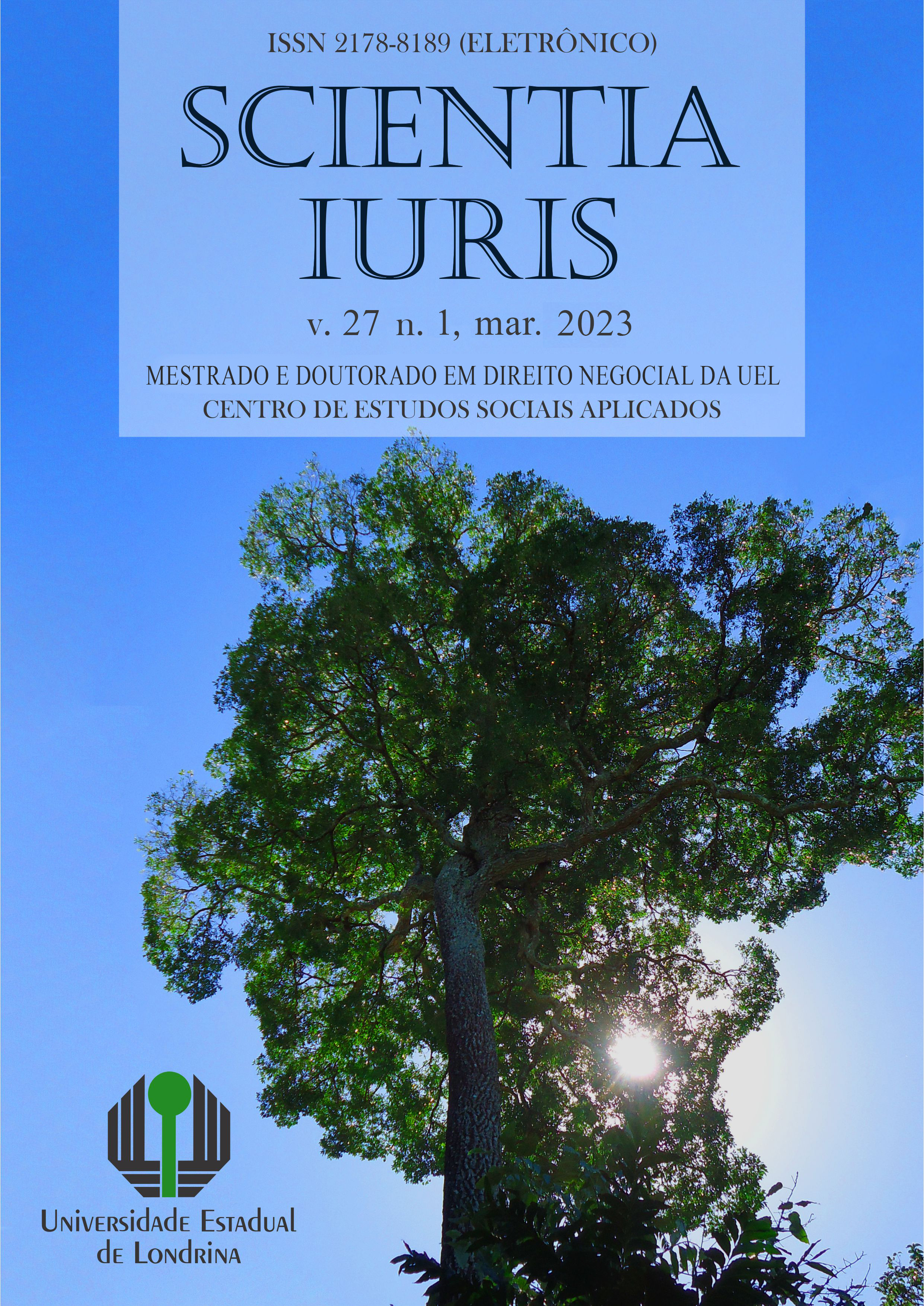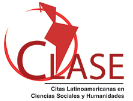Copyright in transmedia narratives: the instrumentalization of copyright in contracts
DOI:
https://doi.org/10.5433/2178-8189.2023v27n1p62Keywords:
Copyright. Transmedia storytelling. Contracts. Media Convergence.Abstract
The theme of this article is to analyze how copyright can be secured and instrumentalized in transmedia narratives. Therefore, the research problem that this work seeks to answer is to verify if contracts are valid means for the instrumentalization of Copyright in works constructed through transmedia narratives. A transmedia narrative is essentially characterized by telling a narrative through the use of various media, with diversified content adapted to each type of support. These contents form an amalgam and complement each other, giving rise to a new way of building narratives. Through the study carried out, the initial hypothesis was confirmed, since the author is free to dispose of and negotiate the exclusive rights of economic exploitation of the work. The author, by himself or by some entity that represents him, can negotiate the scope of the assignment or the authorization of the use of the patrimonial rights that belong to him, such as the purpose of the assignment, its terms and cost. In a transmedia narrative, the contractual instrument must be detailed and expressly bring all forms of use of the work. The approach method used was the hypothetical-deductive and the monographic procedure.
Downloads
References
com as alterações da lei 12.853/2013 e jurisprudência dos Tribunais Superiores. Rio
de Janeiro: Lumen Juris, 2017.
AMARAL, Jordana Siteneski do; BOFF, Salete Oro. A falibilidade do algoritmo Content ID na identificação de violações de direito autoral nos vlogs do YouTube: embates sobre liberdade de expressão na cultura participativa. In: Revista de Direito, Inovação, Propriedade Intelectual e Concorrência. Porto Alegre, v. 4, n. 2, p. 43-62, Jul/Dez. 2018. Disponível em: https://www.indexlaw.org/index.php/revistadipic/article/
view/4679/pdf. Acesso em: 10 set. 2021.
AMARAL, Jordana Siteneski do; BOFF, Salete Oro. Uma obra e vários autores: o direito autoral e as "fan-fictionals" na cultura da convergência. In: Scientia Iuris, Londrina, v. 22, n. 1, p.162-189, mar. 2018. Disponível em: http://www.uel.br/revistas/uel/index.php/iuris/article/view/29964. Acesso em: 14 set. 2021
ASCENSÃO, José de Oliveira. Direito Autoral. 2.ed São Paulo: Renovar, 1997.
BITTAR, Carlos Alberto. Direito de Autor. 6. ed., Rio de Janeiro: Forense, 2015.
BOFF, Salete Oro. Acordos e tratados internacionais sobre propriedade intelectual.
In: Salete Oro Boff; FORTES,Vinícius Borges; MENEGAZZO, André Frandoloso; TOCHETTO,Gabriel Zanatta. (orgs.). Propriedade intelectual: marcos regulatórios. Erechim,RS: Deviant, 2017, v. 1, p. 11-30
BRASIL. Lei de Direitos Autorais (Lei nº 9.610, de 19 de fevereiro de 1998). Disponível em: http://www.planalto.gov.br/ccivil_03/leis/l9610.htm Acesso em: 28 set. 2021
EVANS, Elizabeth. Transmedia Television: Audiences, New Media, and Daily Life.
New York: Routledge, 2011.
FRAGOSO, João Henrique da Rosa. Direito Autoral: da antiguidade à Internet. São
Paulo: Quartier Latin, 2009.
GANDELMAN, Henrique. De Gutemberg à Internet: direitos autorais na era digital.4.ed., Rio de Janeiro: Record, 2001.
JENKINS, Henry. Cultura da Convergência. 2. ed. São Paulo: Aleph, 2009.
MARTINO, Luís Mauto Sá. Teoria das mídias digitais: linguagens ambientes e redes.2 ed., Petrópolis, RJ: Vozes, 2015
PRATTEN, Robert. Getting started with transmedia storytelling: CreateSpace IndependentPublishing Platform: 2 ed., 2011.
ZANINI, Leandro Estevam de Assis. Direito de Autor. São Paulo: Saraiva, 2015.
Downloads
Published
How to Cite
Issue
Section
License
Copyright (c) 2023 Scientia Iuris

This work is licensed under a Creative Commons Attribution 4.0 International License.
The journal reserves the right to modify, in the original text of the submitted article, normative, spelling and grammatical mistakes in order to maintain the cultured standard of language and the credibility of the journal. The journal will respect the authors' writing style. Changes, corrections or suggestions of conceptual order will be sent to the authors, when necessary. In such cases, the articles will be re-examined. The final exams will not be sent to the authors. The published works become the property of the journal, in other words, its total or partial reprinting is subject to the express authorization of the journal. In all subsequent citations, the original source of publication shall be cited and in the case of Photographic Speeches, shall be approved by the original author. The opinions expressed by the authors of the journal's articles are of their sole responsibility.


















